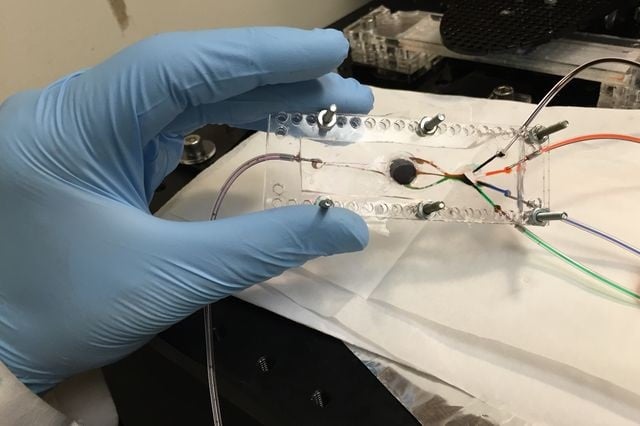Bioengineers at UCLA have developed a 3D printer to make complex biological tissues that could be used in medical transplants and surgeries.
Ali Khademhosseini, a professor at the UCLA Samueli School of Engineering, led of team of researchers to employ a light-based process called stereolithography to create a bioprinter they say could advance the field of regenerative medicine.
The new printer was featured in a study in Advanced Materials published May 7.
“Our new approach offers a way to build complex biocompatible structures made from different materials,” said Khademhosseini, who led the study, in a statement.
The custom printer has two components – a microfluidic chip with numerous inlets that each “print” a different material, and a digital micromirror that employs an array of more than a million tiny mirrors that each move independently.
The scientists then used different hydrogels that, combined with light, created complex 3D structures that mimicked muscle and connective tissues. They printed shapes that mimicked tumors, with networks of blood vessels, which could be used as biological models to study cancers.
Khademhosseini, a professor at Harvard Medical School until he joined UCLA last fall, is UCLA’s Levi Knight endowed professor and associate director at its California NanoSystems Institute.
Health business reporter Dana Bartholomew can be reached at [email protected]. Follow him on Twitter @_DanaBart.

